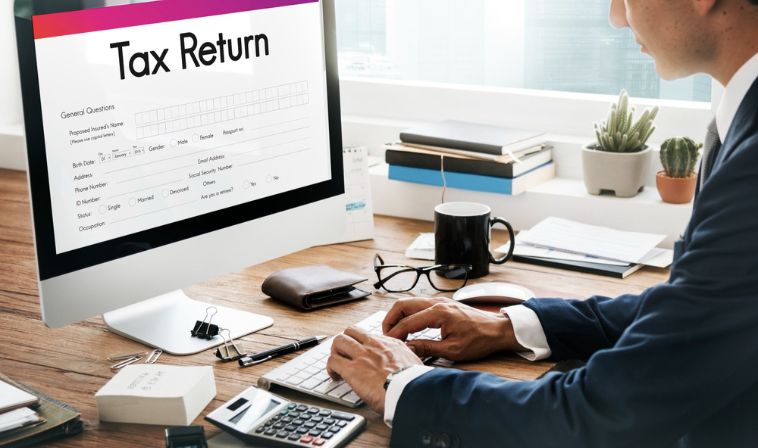Filing US and Australian Taxes: 8 Reasons Why Your Tax Refund Is So Low
23 June 2025
5 Mins Read

toc impalement
You have filed your US and Australian tax returns. You waited and you checked your bank account… and the refund you were anticipating?
You are wondering, “Why is my tax refund so low?” Well, it’s either much lower than in previous years or worse, nowhere to be found.
If you’re a US expat in Australia, you’ve got two tax regimes, varying filing requirements, duplicative income reporting, and tax credits that don’t always act as you’d anticipate. So why is my tax refund so low?
Why Is My Tax Refund So Low? Answered!

Let’s break it down in simple terms and see what might be reducing your refund on either side of the globe.
1. You Didn’t Overpay Enough Tax in Either Country
Let’s begin with the obvious: a tax refund isn’t a bonus, it’s a return. If you didn’t overpay your taxes last year, either in Australia or the United States, your refund won’t be substantial or at all.
In Australia:
- If your employer took out the right amount of tax, your return won’t be high.
- If you didn’t have a lot of deductions or offsets to claim, there isn’t much to “refund.”
In the US:
- If you apply the Foreign Tax Credit (Form 1116), it typically wipes out your tax bill, but does not generate a refund unless you paid too much.
- In case your foreign tax credits were restricted, you can forget about a refund altogether.
2. Foreign Tax Credits Aren’t Refundable
Here’s the catch: Foreign Tax Credits don’t bring cash.
They lower your US tax bill, usually to zero, but if your bill is already minimal or reduced to zero, you don’t receive the remainder refunded.
That’s why you hear US expats saying, “I filed, but I didn’t get anything back.” You may have succeeded in avoiding tax, which is a bonus!
But it won’t earn you a refund unless you were under-withheld in the past or paid estimated taxes.
3. You Excluded Foreign-Earned Income from Tax Using FEIE
If you applied Form 2555 to exclude your foreign earnings (up to US$120,000+ annually), you probably lowered your US tax obligation to zero. Keep this in mind, though: you cannot obtain a refund on income that is excluded.
Therefore, if you received no US-sourced income or pre-paid US tax, the IRS has nothing to give back to you.
This is beneficial for tax efficiency, but it can be detrimental to your bank balance when it comes to refund time.
4. You Had Multiple Jobs or Weren’t Taxed Correctly in Australia
Many expats have contract work, casual employment, or change employers multiple times. If you didn’t update your tax-free threshold correctly with each employer, you may have paid too little or too much tax, which could impact your Australian refund.
Also, if you:
- Had no tax withheld on Centrelink or freelance earnings
- Commenced work during the middle of the year
- Didn’t claim your deductions correctly
…your ATO refund may come back smaller than you anticipated, or you may receive a tax bill.
5. You Have Student Loan (HELP/HECS) Repayments Owed
If your salary exceeded the threshold for repayment (around AUD$51,550 currently), some of your Australian tax refund could have been paid towards your student loan, taking less money from your final refund.
And if you’re a double filer with both Australian and US education obligations, this might also impact the amount of cash you end up with.
6. You’re No Longer Eligible for Important Offsets
The Low and Middle Income Tax Offset (LMITO), which provided many Australians with a refund boost in recent years, lapsed after the 2021-22 tax year. That alone caused millions of refunds to drop unexpectedly.
If you also lost your access to other offsets (such as the Low Income Tax Offset or private health rebate), your Australian refund would be reduced proportionally.
7. Your Foreign Bank Account Reporting Didn’t Align
If you didn’t accurately report your Australian accounts to the IRS (through FBAR or Form 8938), or you inadvertently over-reported income already taxed by the ATO, the IRS can delay or reduce your refund.
US expats tend to unwittingly:
- Double-report gross income
- Misclassify superannuation or investments
- Miss eligible credits or exclusions
This is the reason that both returns must be filed cautiously, particularly when they intersect.
8. The IRS or ATO Held Back Your Refund for Other Reasons
Some refunds are held back or offset for:
- Outstanding tax obligations
- Missing paperwork or ID verification
- Underreporting income or mismatched reporting
You may verify your status:
- For the IRS: Where’s My Refund?
- For the ATO: Log in to your MyGov account and look at your Notices or Income Tax summary
Final Thought: Refund Expectations Need Realignment
Filing in two nations changes math. Expats from the US frequently assume they’ll have huge refunds since they’re paying tax in Australia.
But with no overpayments, refundable credits, or US withholding, there’s usually nothing to “get back.”
Still, this doesn’t mean you’ve done something wrong. In many cases, breaking even is the ideal result. It means you’ve paid what’s owed. Nothing more, nothing less.
If your refund was lower than expected or vanished altogether, the next step is to review:
- Firstly, your ATO tax return and PAYG summary
- Secondly, your IRS filing (Forms 1040, 1116, 2555, etc.)
- Your eligibility for deductions, credits, or offsets
A tax professional knowledgeable about both the US and Australian systems can assist in identifying the problem and making adjustments to your plan for next year.
FAQs
Because foreign tax credits merely reduce US tax liability, they don’t give rise to a refund unless you paid too much US tax.
Yes. They are two separate systems. You can receive a refund from one and have to pay tax to the other, depending on the income and credits applied.
You can correct previous tax returns in both nations. The IRS typically has a limit of 3 years for amendments, while the ATO has 2 years for most individuals.
Potentially. Super is a grey area for the IRS, and may trigger extra reporting (such as Form 3520), but it’s not always taxable. Seek advice before excluding it.

















